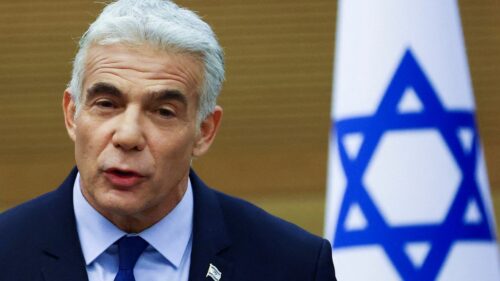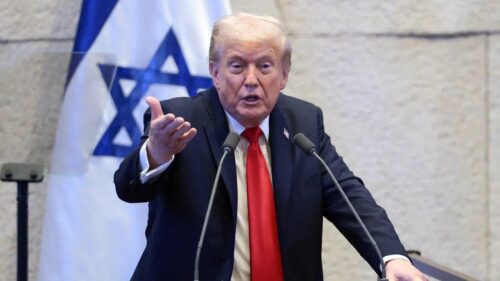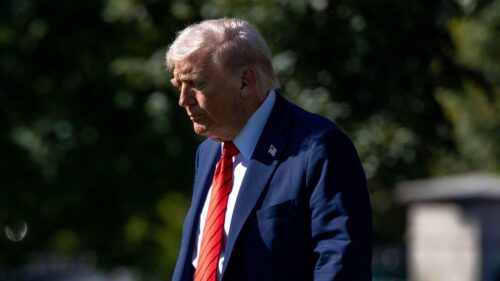
The National Interest: Washington could leverage the Baku-Jerusalem relationship to contain Iranian geopolitical ambitions
Although pushed out of Syria, Iran will continue to challenge U.S. strategy in West Asia. Meanwhile, the Abraham Accords between Israel and moderate Sunni Arab states, while a vital and necessary component of the regional security framework, are insufficient on their own. The Trump administration will need to rally friends and allies to achieve its goal of peace through strength. In this context, the strategic partnership between Israel and Azerbaijan can be beneficial not only for the Middle East but also for America’s broader strategic priorities in Eurasia, The National Interest writes.
To address its recent significant strategic loss in Syria, as well as throughout the broader Middle East, Iran has been actively building relations with Russia and Pakistan over the past month. On Jan. 17, Iranian president Masoud Pezeshkian traveled to Moscow for his third meeting with Russian president Vladimir Putin in six months, where the two leaders formalized a twenty-year comprehensive strategic partnership treaty. On Jan. 20, Maj. Gen. Mohammad Bagheri, the chief of Iran’s Armed Forces General Staff, visited Pakistan to discuss security and border management on the same day that President Donald Trump took the oath of office for a second term. Leading a delegation of senior commanders, Tehran’s highest-ranking military officer engaged in discussions with the top officials of the Pakistani armed forces, as well as the country’s defense minister and president.
Iran’s moves, especially its growing ties with Russia, behoove the Trump White House to think outside the proverbial box. And it does not have to look too far to recognize the role that Azerbaijan can play. This is a Muslim-majority nation with a significant border with Iran. It separates Iran from Russia, which is busily developing a north-south trade corridor. The port of Baku is also a major trade gateway for the East-West trade coming from Central Asia.
“Since its victory over Armenia in the 2020 Karabakh war, Azerbaijan has increasingly viewed itself as a rising middle power. While Baku is still working to achieve a post-conflict settlement with Yerevan, it has been asserting its strategic stance. It has been building closer ties with its Trans-Caspian neighbors in Central Asia. The downing of a commercial airliner by a Russian air defense system on Christmas Day has even given Baku leverage to push back against its aggressive northern neighbor, Russia, as evidenced by the unusually strong language used by President Ilham Aliyev against Moscow’s attempts to deflect from its complicity in the tragic crash,” the magazine writes.
As noted, Baku has had a very difficult bilateral relationship with Iran but has managed to avoid conflict while ensuring its interests. On a more geopolitical scale, Iran’s decades-old alliance with Armenia has been a major concern for Azerbaijan.
Perhaps the most significant involvement in the Middle East is Azerbaijan’s thirty-year strategic relationship with its key U.S. ally, Israel. Azerbaijan-Israel relations have focused on three major levels. Baku has been a vital source of Jerusalem’s energy security. Conversely, Israel has served as a major supplier of military hardware. Sharing a common threat from an expansionist Iran, the two have maintained a close partnership, particularly in intelligence-sharing, to counter the Islamic Republic’s efforts to project power in the region.
“Washington could leverage the Baku-Jerusalem relationship to contain Iranian geopolitical ambitions. Azerbaijan can serve as a key ally to keep Iran in check and maintain an important communication channel with Turkey. While still a NATO ally, Ankara is seeking to establish itself as a regional player, and U.S.-Turkish interests will not always align despite there currently being considerable overlap regarding Iran. Therefore, it is in the American interest to foster a close relationship with the Azerbaijanis to maintain a balance of power in the broader region, especially as balancing Turkey and the Gulf Arab states becomes increasingly important,” the magazine states.
It is also critical that the new Trump administration also pay close attention to Azerbaijan’s evolving relationship with Russia. Turkey has already been benefiting from its close ties to Azerbaijan to expand its influence in both the Black and Caspian Sea basins. For the United States, it is even more critical that it forge closer ties with Azerbaijan, the one country in the world that has borders with both Russia and Iran.


